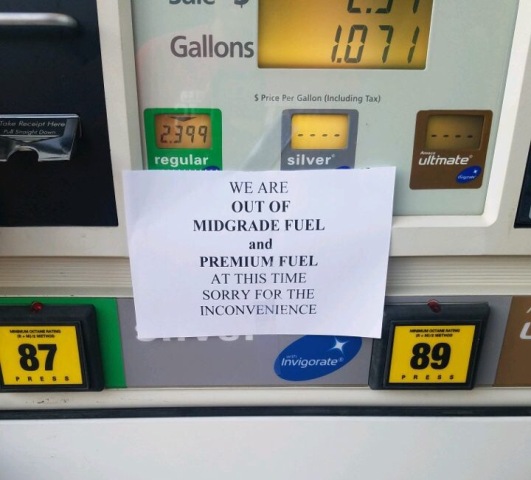Pipeline break causes gas drought in southern states

Many gas stations in Forsyth County were overflowing on Saturday and Sunday as people were trying to fill up their tanks before there was no more gas left. Many customers experienced a raise in gas prices and, in some cases, there being no more gas left to purchase.
There has been a mass drought in gas due to a pipeline break in Alabama, causing panic throughout many Southern states. The broken pipeline experienced a leak of over 250,000 gallons of fuel. Residents of Georgia have experienced inflated gas prices and, at many gas stations, a complete lack of fuel.
Governor Nathan Deal issued a State of Emergency on Sept. 19th for the state of Georgia. Within this official statement, it is said that because of the “serious leak” and the threat of price gouging (the heightened price of goods than what is considered reasonable or fair), Deal will be restating Georgia state law O.C.G.A § 38-3-51 to prevent price gouging. Along with this, Deal has lifted operating regulations for the trucks driving and delivering oil. He also implores citizens to continue on with life as usual, including typical “consumption levels” and “travel schedules“.
The pipeline, owned by Colonial Pipeline Company, which transports hefty amounts of gas to Eastern and Southern states, is currently working on getting the gas flowing properly again, employing more than 700 employees to repair the problem. The company set to work on constructing a bypass around the damaged pipelines. Colonial Pipelines is working “around-the-clock” and has oil delivered or on route to southern states south such as Tennessee, The Carolinas, Alabama, and here in Georgia. The cause of the leak has not yet been determined.
The company, based in Alpharetta, Ga., typically transports over 100 million gallons of fuel all along the continental United States daily.
Your donation will help support The Lambert Post, Lambert High Schools student-run newspaper! Your contribution will allow us to purchase equipment and cover website hosting costs.









